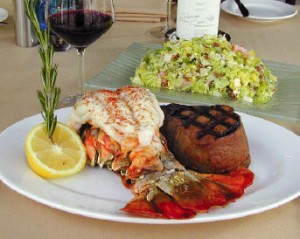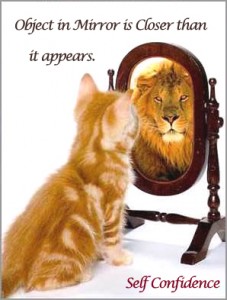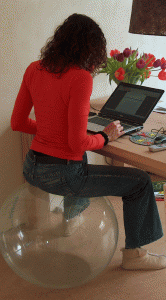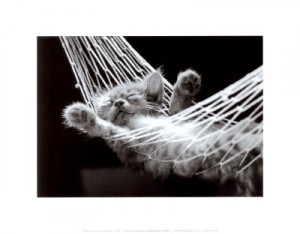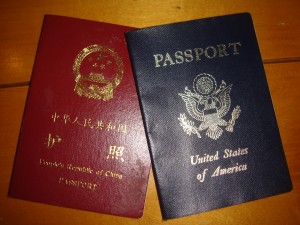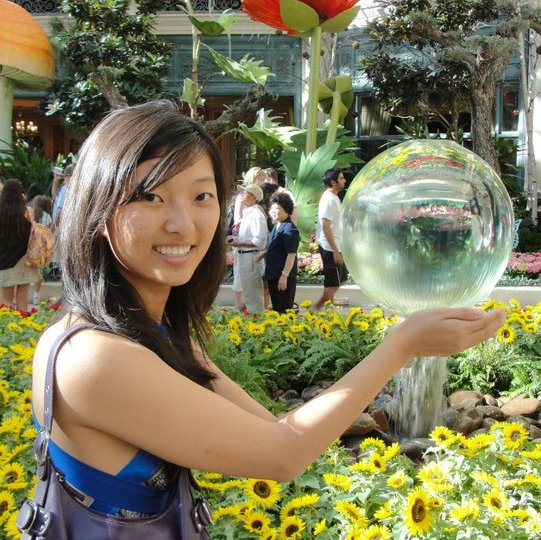I just overheard my mom on the phone, booking her plane ticket to Mongolia, due to leave just about 12 hours after mine to Singapore leaves LAX. The past couple of days she has been lamenting what to do about our mail, since many statements cannot be sent to P.O. boxes and there is no one in our family here to take care of it for us. We used to get it forwarded to a family friend’s place, but that’s such a hassle to do for just a month or two.
Now that I’m leaving the country, my mom is left to figure out what to do with the house (and her life) again. When I was studying abroad in England, she rented it out and moved back to China with my dad. Should she do that again or stick around to try to pursue a career in aerospace, as she’s dreamed of doing? Strangely enough, my life is what gives her some stability – whenever I’m around, she can stay at home and do various types of work happily. Yet, once I leave, she needs to figure what her life is about, sans moi.
All of this made me think of the fragmented time I spent with my parents growing up and how multiple moves affected my sense of independence. It’s no wonder I did become so independent, what with one parent or the other often away and our family hardly ever staying in one place long enough to make lasting friends. As I grew older, it became my time to be away from home and friends on my own – to swim camps, to boot camps, to a swim competition in Australia, and the frequent visits to my relatives in China. Another factor contributing to my independence was early on: I didn’t even meet my parents until I was three and a half (my dad left six months before I was born and my mom left six months after I was born, so I hardly remembered her).
In the early days, my parents were busy finishing up their graduate degrees at Penn State – a Master’s for my mother and a Doctorate for my father. To support us, they had to be research assistants and my dad worked as a teaching assistant as well. From there, it was off to Kansas, where my dad worked for the government and my mom found a random job with Payless Shoes. I would come home to an empty house and do homework or play by myself. I think that’s when my desire for a sibling or pet began to grow, as I spent many quiet afternoons alone in the house, waiting for my mom to get home from work. I had one or two good friends, but mostly kept to myself. I enjoyed playing around during recess, but I rarely mixed home life with school life.
Three years later I was sent back to China for a year to reacquaint myself with the culture and language. It was a blissful time of no homework, no worries, since I was so far behind in all the subjects – except for English, where I was so far ahead – that I was kind of just a dead weight in class. Nevertheless, the kids loved me because this little 3rd grader was stronger than the 6th graders, and faster than anyone in school. I didn’t really contact my parents much during that year and when I returned to the US, I had no viable way of staying in touch with my friends from that school.
When we moved to Missouri, my dad had been working there for awhile. He had secured a position with a company that kept him traveling as he and my mom started their own company, so my mom went back to China for two or three years to work on that. The internet had just gone public and I was immersed in the world of HTML, making a variety of websites that I have since forgotten about. I was also an extreme bookworm, preferring to spend time poring over novels to that of physical company. At school, I was a social butterfly, known by everyone but not close to many.
By the time we made the move to New York, I was in the smack middle of my middle school years. Afraid that I would get gaps in my knowledge if I took the honors track for math and science, my counselor advised me to follow the normal track and then test out of it after 8th grade. The classes, unfortunately, were far too easy and filled with immature peers who I did not connect with. My close set of friends didn’t have many classes with me, since they were all on the honors track. After finishing middle school, I found that this test that my counselor talked about did not exist. I was stuck. Meanwhile, my mom busied herself with the stock market as my dad worked hard at his new Vice President position, often going on business trips.
During my freshman year of high school, I took a math class that was nearly a joke for me – algebra. I aced nearly all of the tests and quizzes and got a disappointing 99 on my final. Frustrated with the lack of challenge, my mom had me talk to my teacher to find out what I would need to know for the next level of math. I spent that nextsummer learning geometry with my mother, meticulously practicing, learning, and writing out homework. At the beginning of my sophomore year, we took all the paperwork to the principal and my new counselor to show them that I had mastered the material. It was agreed that I should be allowed to learn trig at that point, however, I still had to attend geometry class. (Apparently a New York State law that I needed to spend a certain number of hours in the classroom – utterly useless.) So, I took two math classes simultaneously that year (along with either other classes, ensuring I never had a lunch period). Though I finally caught up academically, socially it was a bit too late – the honors track students had already formed their cliques. And I was not a part of them.
My dad had moved to Texas when his company moved headquarters and waited there for us to move there to join him sometime in the future. Instead, a headhunter found him and convinced him to take a new position as VP over in a Californian company. So, with just two weeks notice in the summer following my sophomore year, we packed up and moved across the nation. Being that it was summer, not many people knew what had happened to me and why I left. Once again I had been the social butterfly, knowing everyone in my grade, but hardly close to any of them. Only my closest group of friends saw me off and the rest of the school I didn’t know well enough to call up to inform.
I started life anew in California as a junior. With just two years of high school left and a lot of focus on college prep work, I made friends only with people in my classes, on my swim team, and in my JROTC unit. This was the most present my parents had ever been, but I was far too busy with schoolwork, SAT prep, ROTC training, swim practice, and meets to really spend time with them. For the last blissful weeks of high school, I lived it up driving around with my friends and enjoying life after APs and before college.
Then came UCLA, where I was so busy with being a college student that I only went home when I needed to do laundry. When I was about to start my second year, my dad moved back to China to work and has been there ever since. My third year of college I went abroad and by the time I returned, my mom had joined my dad in China. I spent my fourth year and extra quarter on my own in this country before my mom came back to join me until I found a job. Now I’ll be off to Singapore and by the time I get back, who knows how things will be.
So you see, much of my life was spent with my parents traveling around or busy at work. I had a lot of time to myself in the afternoons when I came back from school and spent many years away from them. Even when we are together, we all are busy with our own obligations, so I don’t just hang out with them much. In fact, the only true bonding we get is the periodic family outings we go on – road trips my dad concocts to all kinds of places. It’s been an int
eresting lifestyle and it just amuses me that in a week, our family will once again be split amongst three different countries. I do love being independent and traveling a lot, but eventually I’d like to settle somewhere long-term to have as a home base.


